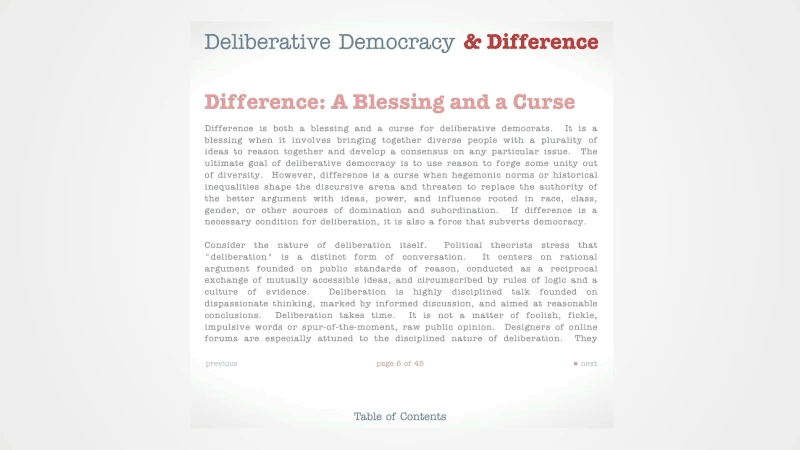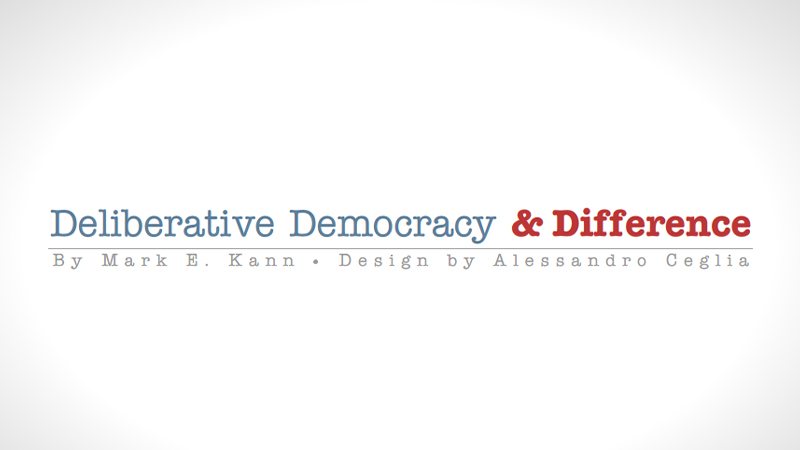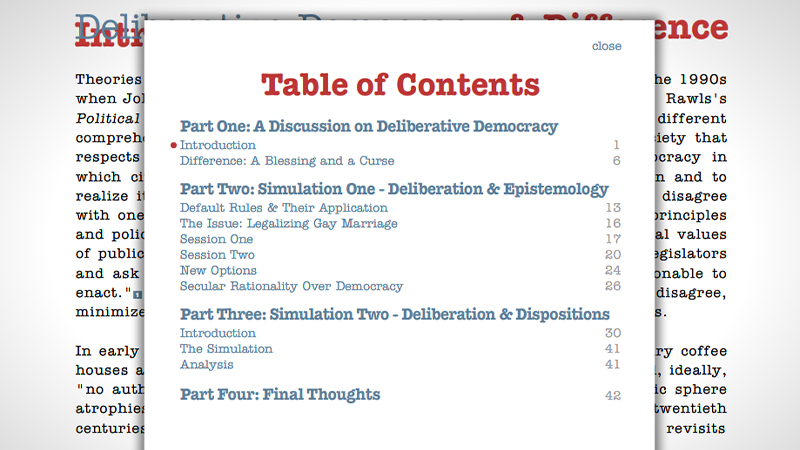"Deliberative Democracy and Difference" explores the pervasive idea of a perfect public sphere: "In the heady dot.com days around about 1997, many commentators celebrated the web's potential to foster a vibrant electronic public sphere. This online agora was commonly envisioned as a more ideal version of our messy embodied lives, a place where we could shuck off the constraints of physicality and build new 'cyber communities' free of the shackles of race, gender, sexuality and other markers of identity and difference. While such visions have been frequently critiqued for their blindspots and tendencies toward determinism, the optimism of that earlier moment has resurfaced in discussions of the 'participatory' culture of Web 2.0 technologies. The dream of the perfect public sphere also surfaces in theories of deliberative democracy that imagine the possibility of rational consensus and civic engagement where reasoned deliberation trumps passion, often fostered via online tools and public fora.
Mark Kann's 'Deliberative Democracy and Difference' unpacks the core assumptions of such theories, questioning any easy fantasy of disinterested discussion and evaluation. He challenges the notion that participants in deliberative democracy proceed solely via rational discourse. As was the case with those early denizens of cyberspace, we can not easily shed our predispositions and emotions. We carry our histories with us in complex ways, whether we are entering Second Life or a deliberative forum, and these histories powerfully shape our ability to act 'neutrally.' Further, systemic conditions of inequality and oppression mean that some participants will experience arguments or spaces that may seem 'objective' to some as laced through and through with power.
Kann's argument proceeds largely as linear text, looking much like a traditional print article ported to the online spaces of Vectors. But Kann has worked with designer Alex Ceglia to enact his argument through a series of animated models or simulations that bring his words to life. The last of these simulations invites you to join in, assuming the role of moderator in a deliberative forum. Algorithmically revamping the classic role playing game, Dungeon and Dragons, this exercise illustrates the degree to which preexisting (and typically gendered) traits can reroute the experience of a seemingly 'neutral' interaction, enabling some to speak more freely and forcefully than others." – Vectors Journal Editorial Staff
1 COPY IN THE NEXT
Published in Fall, 2007 by Vectors in Volume 3, Issue 1.
This copy was given to the Electronic Literature Lab by Erik Loyer in November of 2021.
PUBLICATION TYPE
Online Journal
COPY MEDIA FORMAT
Web


